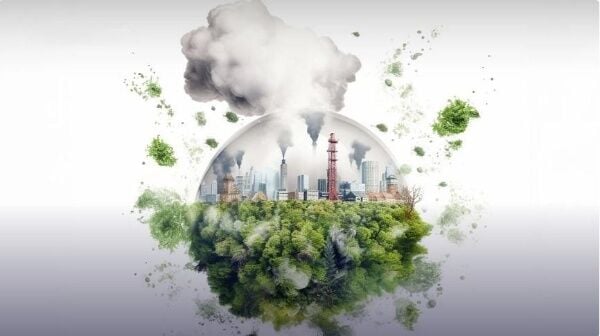Thailand’s hotels produce the most greenhouse gas in Asia

According to KResearch’s latest findings, Thai hotels are the leading culprits in greenhouse gas emissions, emitting a whopping 0.064 tonnes of carbon per guest each night, significantly higher than the regional and global averages of 0.057 and 0.019 tonnes respectively.
Urging the government to intervene, KResearch emphasised the crucial role of sustainable practices in curbing this environmental menace.
“While hotels worldwide are embracing eco-friendly initiatives, Thailand’s hospitality sector seems to lag.
“With the tourism industry being a major contributor to global emissions, it’s imperative for hotels to adopt green practices.”
The allure of international eco-certifications like Green Key and Green Globe spurred a race among hotels to woo environmentally-conscious travellers. Yet, despite the availability of modern technologies facilitating sustainability efforts, many Thai establishments are still grappling with measurement systems for emissions and lagging in sustainability reporting.
“While some larger hotel chains are leading the charge towards sustainability, smaller operators face hurdles due to budget constraints and a lack of awareness.”
Survey results revealed a mixed bag of efforts, with over half of Thai operators implementing eco-friendly changes such as energy-saving measures and waste recycling. However, budget limitations hinder progress for many, with only a fraction planning significant overhauls soon, reported The Nation.
In light of these challenges, KResearch called upon the government to step up its efforts, advocating for educational campaigns and incentives to propel the industry towards greener pastures. Tax breaks and investment promotions were touted as potential game-changers to incentivise sustainability initiatives.
In related news, Chiang Mai has been blanketed by worsening haze, catapulting it to the top of the list of the world’s ten most polluted cities. The thick smog is a direct consequence of forest fires that have been burning unabated for approximately two weeks. The Geo-Informatics and Space Technology Development Agency (GISTDA) detected 1,420 hotspots on Monday alone.
Latest Thailand News
Follow The Thaiger on Google News:


























